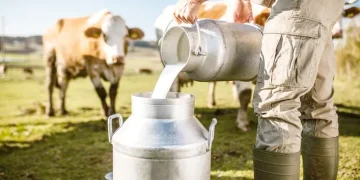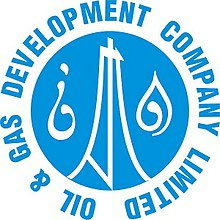Zubair Qureshi
Copenhagen
Denmark is a small country with a long track of innovations in food production, preservation, grading, salting and recycling methods etc.
A country with 62 per cent farmland is able to feed three-time its current population (5.8 million according to 2018 report) yet the country is taking extra measures with public private cooperation to ensure food is not wasted and each morsel reaches the mouth.
Lise Walbom, Chief Executive Officer of Food Nation, a public-private Danish food cluster, while briefing the Pakistani journalists spoke about the Food Nation’s collaboration with private and public food enterprises and companies said the purpose was to increase knowledge and innovation like enhancing agri production.
We are not-for-profit and are working to promote Danish food products and solutions of tomorrow.
She also shared some alarming figures like; each year, 1.6 billion tons of food worth about $1.2 trillion are lost or go to waste—one-third of the total amount of food produced globally or Danish consumers have a food waste of 260,000 tonnes annually. This corresponds to 36% of the total food waste throughout the food chain. In order to meet these challenges, we are looking into good partnership, cooperation all around the world in order to meet big challenges that we are facing within agriculture and food sector. Lise Walbom said the Danish food products are exported to around 190 countries and we are always looking for new partners to cooperate with.
She said food cluster contributes to 25pc of the total export of goods of Denmark. In Denmark and also around the world food waste and loss was a big problem. Globally, more than one-third of food products is either lost or wasted.
The fact that such a huge quantity of food never reaches your or my mouth is a huge challenge and Food Nation is working to ensure proper usage, storage and preservation of food for a longer period.
We are facing strange paradox that at a time people are becoming obese and at the same time a huge number of them are under-nourished.
In 2050 the world population is going to hit 9 billion and we need to find solutions to these global challenges.
Earlier while giving a presentation Project Manager of Food Nation Maria Dyrby Nielsen informed the Pakistani media persons that Denmark with 7,314 km coastline, Denmark has a historical heritage of fishing nation and with quotas and regulation this industry is intact and sustainability is ensured.
Denmark said Maria Dyrby Nielsen is strictly following the UN development goals SDG2, 12, 13 that are related with no poverty, zero hunger, responsible consumption and protection without least affecting the environment.
With world population constantly growing we need to produce in next 40 years as much food as was produced during last 8,000 years, she said.
For countries like Pakistan it is time to adopt such technologies that could help in ensuring food for its population but also reducing on food waste and imbalance in its distributions.
Because of Danish advanced technologies and top quality food around 1 billion people are consuming Danish ingredients, said Maria adding because of Danish technology, 30pc of total yogurt waste in Europe could be prevented.
To a question, Maria said Danish solutions to food challenges of tomorrow include: collaboration with other countries, quality and safety of food, organic food production, and gastronomy.
With Danish technology you optimize production, she said adding a technology from Danish company Sanovo Technology Group, has helped a Japanese mayonnaise company to be able to break 140,000 eggs per hour, while ensuring high food safety and minimum food waste.
Later, the delegation also visited Wefood, a unique initiative in Copenhagen that sells goods that regular supermarkets can no longer sell due to overdue ‘best before’ dates, incorrect labels or damaged packaging.
The products found in Wefood are still edible and safe to consume according to the Danish food legislation, but have simply lost their value to the partner donating them.
To a question about Halal food in Denmark, Maria said in 2016, 101 million broilers were slaughtered in Denmark, corresponding to approximately 150,000 tonnes of chicken meat, and 95 percent of all Danish-produced broilers are slaughtered halal, according to the Danish Agriculture & Food Council.












